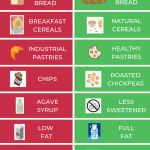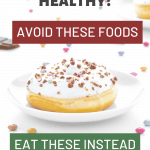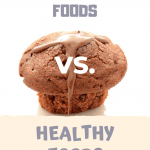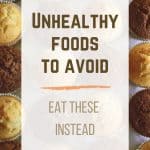Nowadays, unfortunately, it’s too easy to get confused, not understanding which foods are healthy and which aren’t.
However, it’s important to identify all of the unhealthy foods that everyone should avoid to prevent chronic diseases, to maintain a healthy weight and be healthy and full of energy.
It’s worth mentioning that there are unhealthy foods that everyone should avoid, but we need to consider that unhealthy foods are also those foods that our body doesn’t tolerate well; maybe because we have an allergy, maybe an intolerance, or maybe just because our body’s reaction is not pleasant when we eat them.
We always need to keep in mind that everyone’s body is different. We need to connect with our own body to understand what’s good or bad for us.
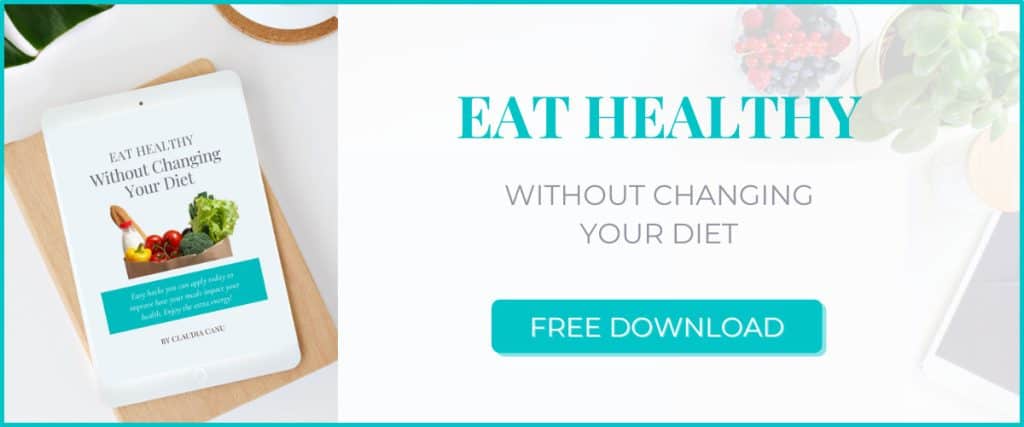
Foods to avoid
Now, let’s have a look at the foods to avoid and the worst foods to eat, in general, if we want to maintain a healthy and balanced diet.
1. White bread that lasts forever
Most commercial breads are made with refined white flour, which is low in fiber and nutrients, and also contain added sugar and preservatives.
2. Breakfast cereal
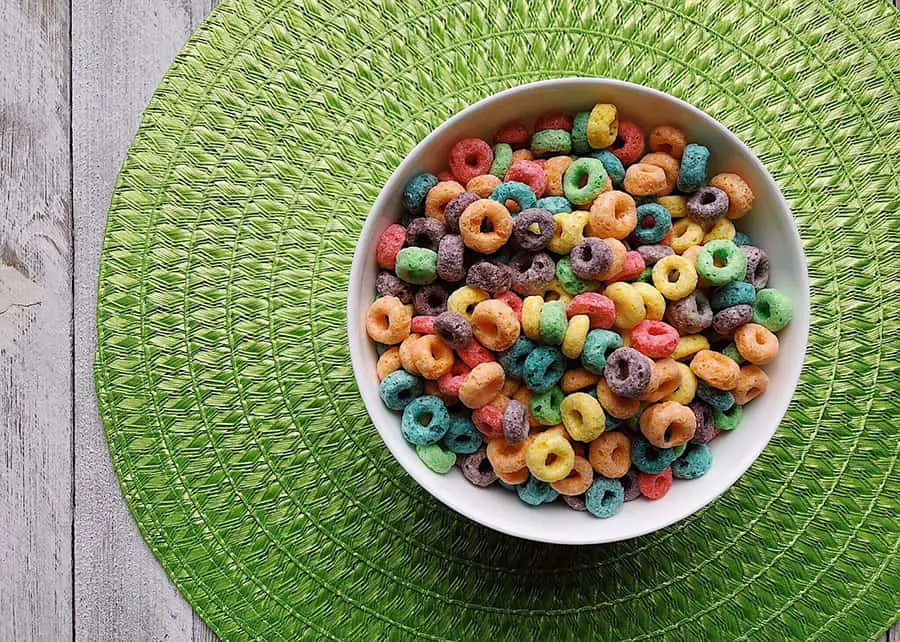
Most of the breakfast cereals that we find in supermarkets are made with refined ingredients, added sugars, and preservatives.
3. Gluten-free, vegan or organic junk food
There are many words used by the food industry to trick us to buy certain foods.
As per law, foods need to be labeled as gluten-free because a person with Celiac Disease can die from having the wrong food.
However, it’s easy to think that the gluten-free label also refers to “healthy”.
The same occurs with the vegan label or any others that we can find in packages that the food industry uses to make us believe that what we are buying is healthy.
4. Pastries, cookies, and cakes
Most traditionally baked goods are unhealthy if eaten often, especially if they come in a package, or are homemade.
The main problem with these foods is that they are made with refined flour and big amounts of sugar. Those that come in a package are also loaded with preservatives and unhealthy types of oil.
5. Chips
According to a 2011 study, it has been shown that the consumption of potato chips over time is associated with weight gain.
Let’s not forget that oils used to fry foods that end up in packages are usually vegetable refined oils with a low smoking point, which means that when used in high temperatures, they change their chemical structure, becoming carcinogens for human consumption.
6. Fried or grilled foods
When we cook food at high temperatures; for example, when we fry or grill it, there are chemical reactions occurring and forming different compounds, some of them not healthy for humans.
An example is the formation of acrylamide, which has been proven to be carcinogenic in rodents and probably also in humans. This specific formation occurs in high-carbohydrate foods, such as potatoes and bread.
7. Agave syrup
Agave syrup has been recently publicized as a healthy sweetener.
However, this sweetener contains a high amount of fructose (almost 85%) that has been shown to increase the risk of cardiovascular disease and metabolic syndrome.
8. Low-fat dairy
For years, we have been made to believe that low-fat foods are better for our health.
However, we now know that fat doesn’t make us fat, and foods that are naturally high in fat are actually healthy for us. In dairy products, for example, fat helps our body to assimilate fat-soluble vitamins.
Also, we need to keep in mind that since fat is what gives good flavor, the low-fat foods have had the fat substituted with sweeteners, so that people keep buying them.
9. Chocolate bars
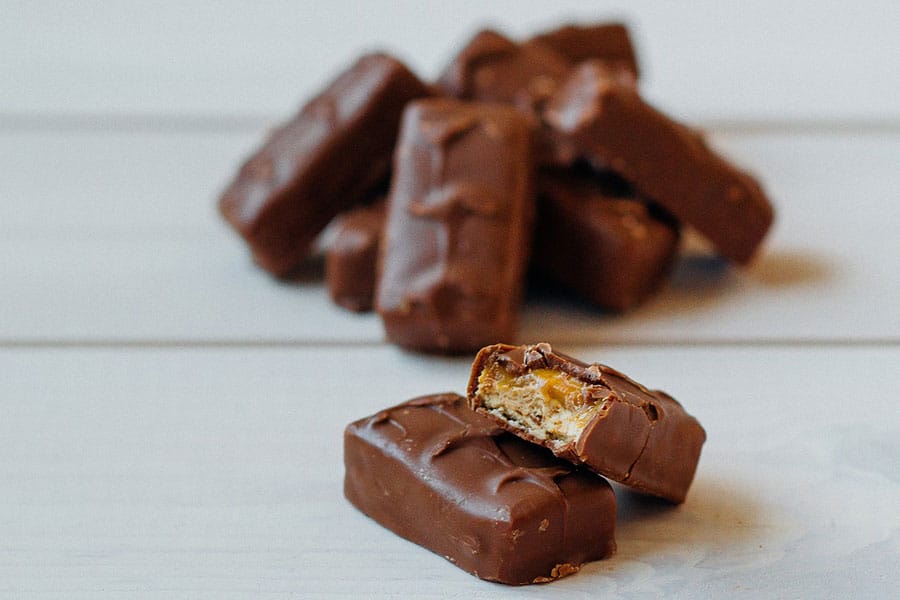
There are many brands of chocolate bars; all of them are highly palatable and very unhealthy. They are loaded with sugar, unhealthy fats and refined flour.
10. Drinks with added sugars, including coffee and teas
In a meta-analysis of 88 studies, where the association between soft drink consumption and nutrition and health outcomes was analyzed, there was found a clear association of soft drink intake with increased energy intake and body weight.
The consumption of calorie-sweetened beverages has also been shown to play a role in the epidemic of obesity, the metabolic syndrome, and fatty liver disease.
Liquid carbohydrates, including those coffees or teas that have syrups, additives and sugars added to them, generally produce less satiety than solid forms, which produce a tendency to eat more calories with the consequence of weight gain.
Finally, sugar additives (most commonly sucrose and high fructose corn syrup) in beverages and processed foods, are suspected to contribute to the development of nonalcoholic fatty liver disease, an increased risk for cardiovascular diseases, mortality and risk for development of Type 2 Diabetes in women.
11. Fruit juices and smoothies
In general, most fruit juices that come in a bottle contain added sugar, but also smoothies can be unhealthy, if they are made only with fruits.
When we make a juice or a smoothie out of fruits, we destroy their fiber, which helps our bodies to slowly assimilate the sugar that fruits contain.

Without the fiber, we are left with a concentrated amount of sugar that reaches our stomachs directly, skipping the first step of digestion, the chewing and the mixing of the food with the enzymes from the saliva.
Finally, in a study about the effects of food forms on appetite and energy intakes, it was shown that the liquid energy doesn’t satisfy our appetite in the same way that solid food does; as a consequence, we would end up consuming more energy during the day.
12. Processed meat
The consumption of processed meats has been associated with a higher incidence of coronary heart disease and diabetes.
13. Packaged foods with unknown ingredients
If you buy foods with a list of ingredients, make sure that you recognize all of the ingredients in the list and that those ingredients are natural and healthy.
14. Fast food meals
Most fast-food chains use cheap, low quality, unhealthy ingredients; such as refined flour, added sugar and bad oils.
Unhealthy food and healthy food
Now that we have seen which foods to avoid, or the worst foods to eat, let’s have a look at some alternatives.
1. Instead of white bread…
… look for dark bread made with organic whole wheat flour, or other type of flour. In general, the darker the bread, the better, but make sure to always read the list of ingredients; they shouldn’t have any other ingredients other than flour, yeast, water and salt.
2. Instead of buying breakfast cereal…
… use organic rolled whole oats to make oats recipes, like this Overnight Coffee Oats, or Homemade Granola. You could also use some chia for this Chia and Flaxseed Pudding, or choose some other healthy breakfast recipe.
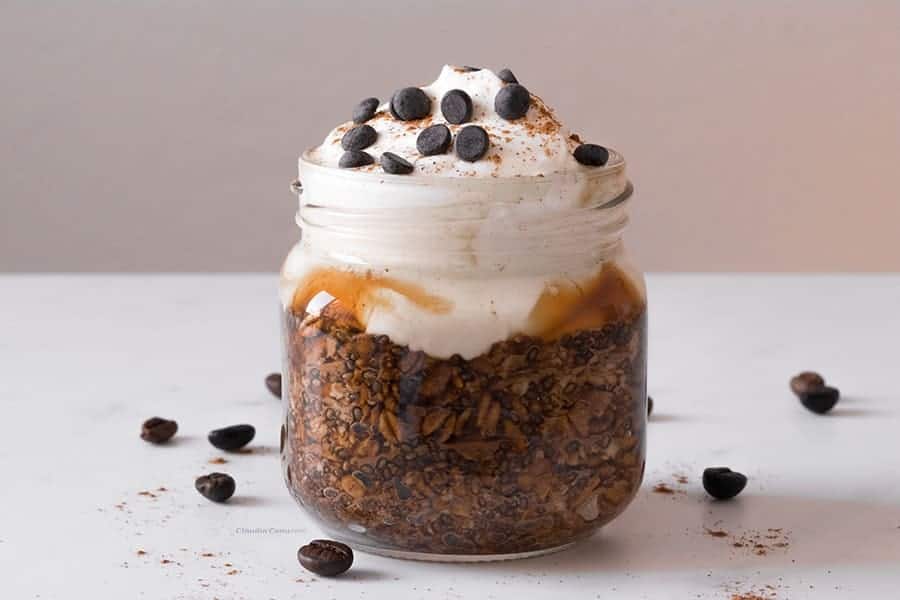
3. Instead of believing claims on food labels…
… do your own research and check the ingredient list.
Also, if you need/want to consume gluten-free or vegan foods, try to find natural alternatives, or prepare them at home, like these Vegan Cheesecakes or Flourless Chocolate Cake.
4. Instead of buying industrial pastries, cookies, and cakes…
…. or baking with refined flour and sugar, learn how to make your own healthy desserts with different flours, using fruit instead of sugar. Try, for example, this Apple Crumble or Gluten-free Muffins.
5. Instead of buying chips…
… if you need some crunchiness, try carrots, nuts or roasted chickpeas.
6. Instead of cooking foods at high temperatures…
… and having them turn brown, make sure to use a milder cooking method; and don’t have your potatoes or bread turn brown.
7. Instead of buying agave syrup…
… and consuming the same, or even higher amounts of sugar than before, try to consume less quantities. For example, use less and less sugar in your coffee, starting with reducing only half a teaspoon and going up from there.
8. Instead of buying low-fat dairy, like yogurt or milk…
… buy them with full fat, and possibly from grass-fed cows. An even better option is to alternate the consumption of cow dairy products with goat or sheep products.
9. Instead of buying chocolate bars…
… eat dark chocolate (70% and higher), fruit or nut butter.
10. Instead of drinks with added sugar…
… drink water, pure coconut water or teas.
You could also make your own flavored water by adding natural ingredients like ginger, or some freshly squeezed lemon or orange, or pieces of fruits like strawberries, peaches or apples, or even herbs like rosemary.
You could also try Golden Milk o Chai Latte.
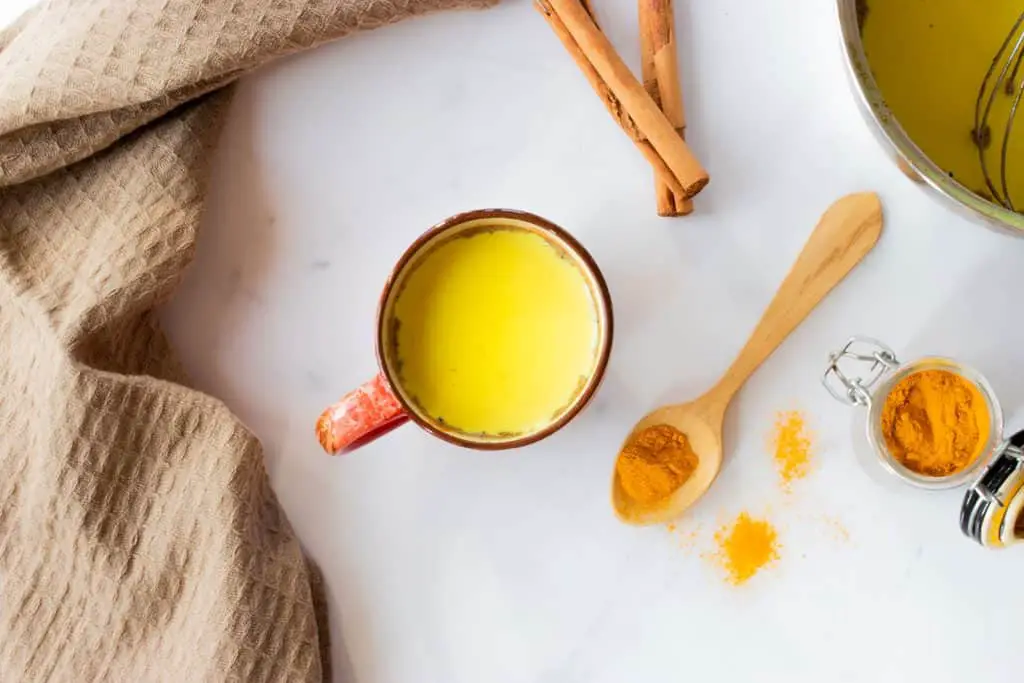
11. Instead of consuming fruit juices and smoothies…
… make sure to add veggies to them, preferably 80% veggies and 20% fruits.
If you fancy some fruits, make sure to chew them instead of drinking them.
You can even upgrade them to a fancier look and taste like this Banana Snack.
12. Instead of buying processed meat at the supermarket…
… it’s better if you consume grass-fed red meat instead. If you want to consume processed meat every once in a while, it’s better if you buy it at the local butcher shop.
13. Instead of buying packaged foods with a long list of ingredients…
… buy the ingredients with no package and prepare your own food.
14. Instead of buying fast food meals…
… get organized and make your own food at home. With a meal plan, you can make sure to always have food ready in the fridge that you actually like and enjoy.

Unhealthy foods list
To sum it up, here is a list of unhealthy foods, in a chart, that you can download and save so that you can quickly see and remember the unhealthy foods and how you can substitute them:
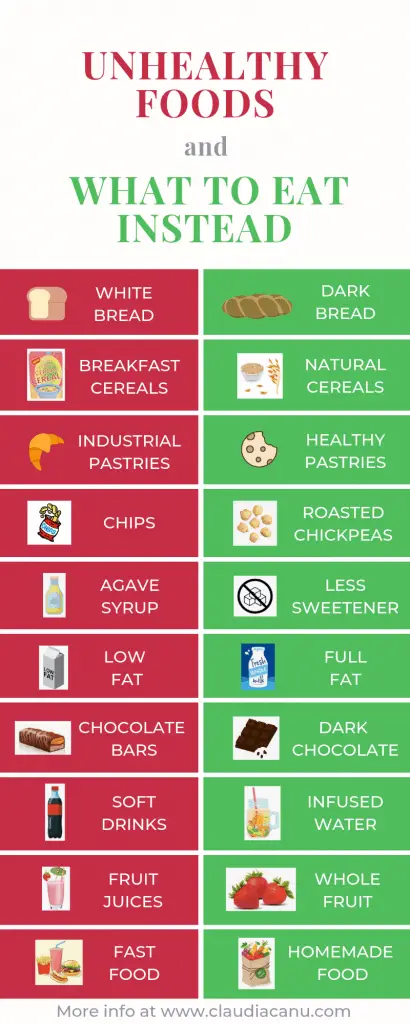
Finally, now that we know which unhealthy foods to avoid, we also need to know, that sometimes, we can give ourselves permission to indulge.
If you are a healthy adult, you don’t need to deprive yourself of some palatable pleasure and, on special occasions, you can keep eating unhealthy foods in moderation without feeling guilty about it.
“Occasionally, and in moderation, are the keys to indulge with no permanent damage to your health.”
Remember to take one step at a time in your journey to a healthier lifestyle, and if you need some help to make your journey easier and more enjoyable, don’t hesitate to reach out to me.
On my private sessions page, you can find more information about what we could do together.
As always, I appreciate you stopping by my blog, and if you think this post might help someone you know to make even a small step to a healthier lifestyle, please don’t hesitate to share it away!
Happy Healthy Life!
A big hug,


Claudia Canu is a former junk food and sugar addict transformed into a Health Motivator with a master’s degree in Nutrition. She has created this website not only to share her “Journey to her Healthy Forties” but also to help other busy women with basic knowledge about nutrition and who don’t love cooking, to live a healthier life, and achieve big goals.
To get in contact with Claudia, visit the contact page. To read more about her, click here.

